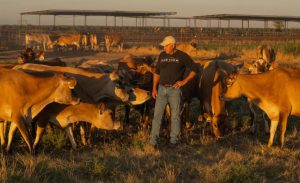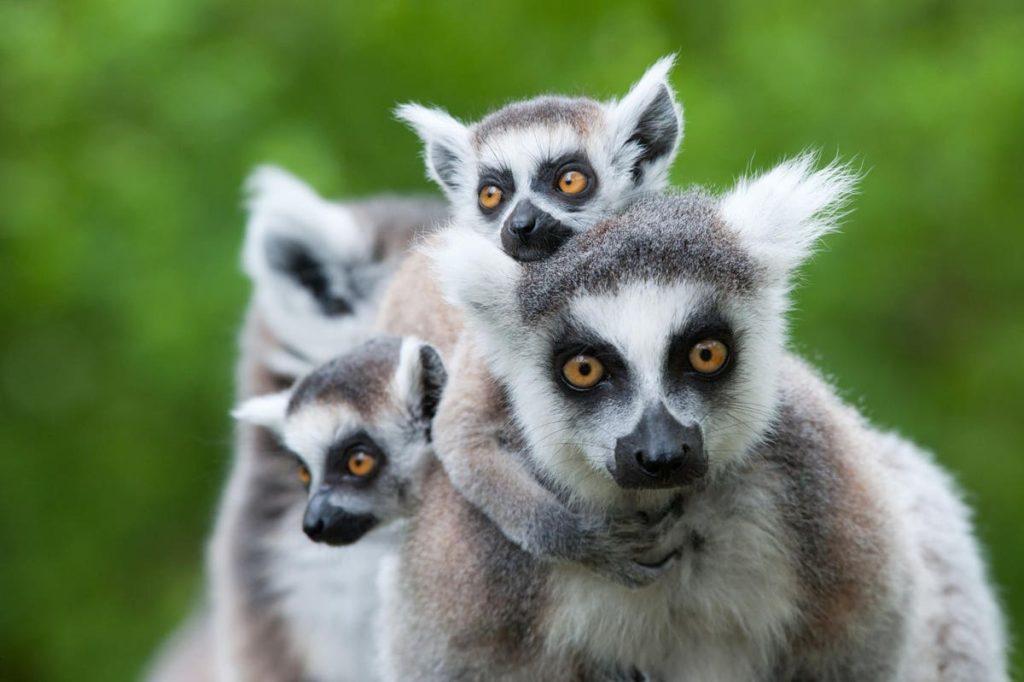Conservationists in Madagascar are working with local communities to reduce forest fires and preserve the country’s iconic lemur species.
Madagascar is the only country with a native lemur population, it has already lost 80% of its natural areas and continues to lose an estimated 200,000 hectares annually to deforestation, according to a 2023 study.
Mamy Razafitsalama, Madagascar country director for NGO Planet Madagascar has been working since 2015 on a project to improve livelihoods and reduce forest fires in Madagascar, where 98% of lemur species are now threatened and a third are critically endangered.
“The objective of this project is to protect 357 hectares of forest fragments and 4000 hectares of continuous forest by reducing the impact and number of fire while increasing local community’s awareness,” Razafitsalama says, adding that since 2018, the project has also planted over 147,000 trees, to create forest corridors.
“We have a good relationship and are respected by the local community which we think an opportunity for conserving lemur and forest in Ankarafantsika National Park,” he says, referring to a 135,000 hectare (over 330,00 acre) tropical forest reserve in Madagascar’s north.
“The communities that we work with live near lemurs, with people and lemurs sharing the same environment,” Razafitsalama says, adding that lemurs have a significant value for locals because the animals naturally disperse seeds and contribute to the health of the ecosystem.
“For some ethnic groups, for example the Tandroy, it is taboo to eat lemurs,” he says, “Because Ankarafantsika is a tourist and research site as well, some of the communities benefit economically because lemurs are there.”
In 2023, UK charity Whitley Fund for Nature (WFN) awarded Razafitsalama a Whitley Award, allowing him to start work clearing 16 kilometres of land to create fire breaks – gaps in vegetation that act as a barrier to slow or stop the progress of forest fires.
Lemur Lessons
Razafitsalama grew up in a small village on the east coast of Madagascar.
“Since I was kid, I had the opportunity to see lemurs close to our village because our village is located close to the forest that moment was memorable to me and inspire me to study animals, especially lemurs later on,” he says adding that he furthered that interest in nature and conservation during his undergraduate studies at the University of Antananarivo when I prepared my Bachelor’s degree in 2006.
“I learned how lemurs are the most endangered group of animals in the world and I’d like to take part on saving them from extinction”, he says.
It is important for scientists from the global south to be the ones to be investigating the solutions to global challenges because the global south have faced most the impact of climate change such as drought, floods, etc and it’s very important to find solutions. Also, the impact of climate change is greater for persons in the global south and they should be the ones that drive action.
Another scientist from the Global South working on his home country’s biodivivesity is Nigerian forestry researcher Samuel Oluwanisola Adeyanju.
He grew up a two hour drive from the Osun Osogbo Sacred Grove, a remnant of old-growth forest regarded as the home of a fertility goddess — now he is helping to preserve the precious biodiversity found there.
Read the full article here










